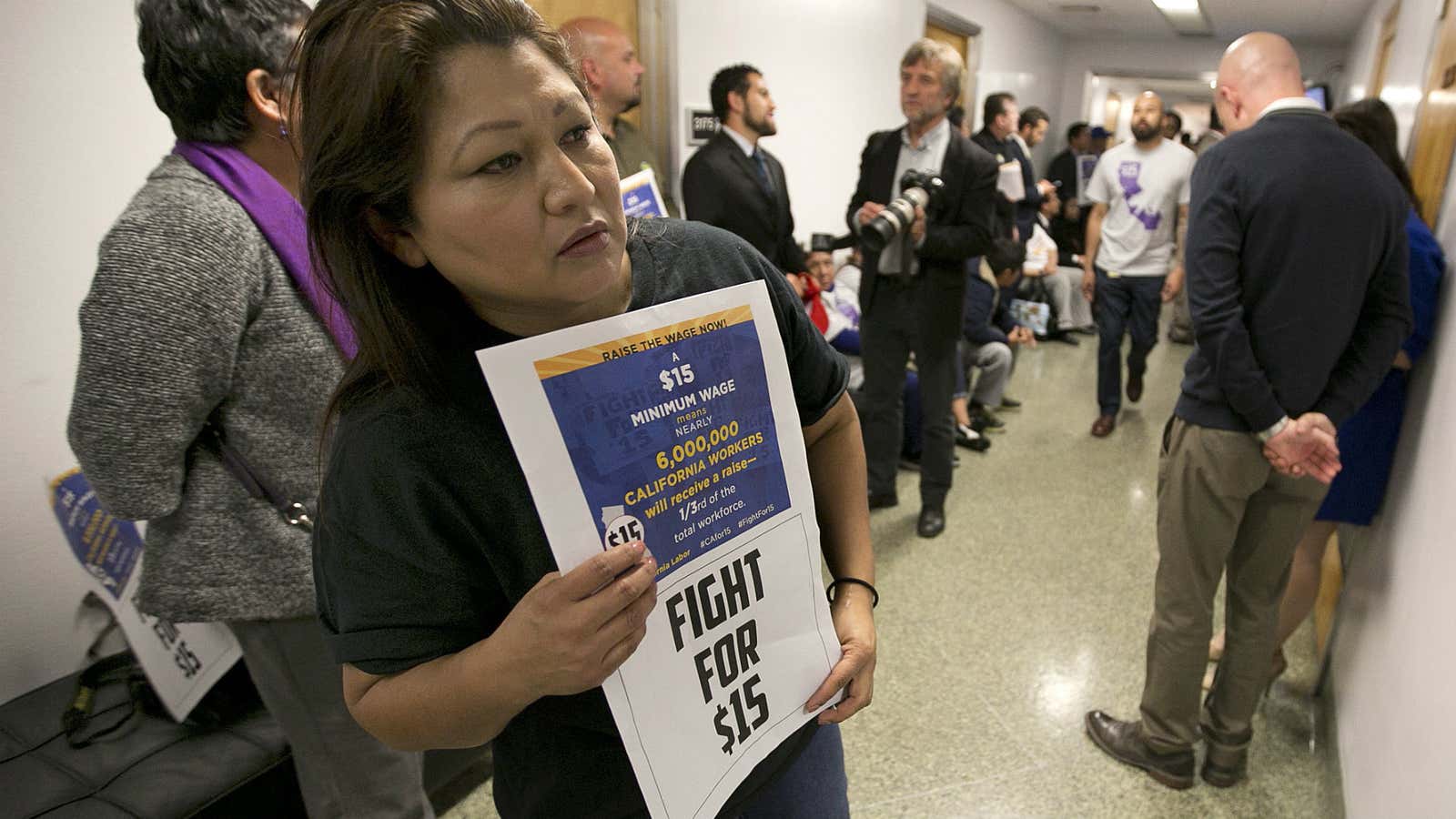When California governor Jerry Brown signed the state’s new $15 per hour minimum wage earlier this month, some of the loudest cheers came from labor unions, longtime champions of a higher minimum wage.
But as it turns out, many of those same unions have been quietly—and often successfully—lobbying cities to let employers who hire union workers pay them less than the mandated minimum.
Unions say it gives them the flexibility to negotiate packages for their workers that supplant wages with health insurance and other benefits.
Critics say that it’s a shrewd move by unions to drive up membership dues and ensure that their workers are the cheapest in town. The exemption gives cost-conscious employers little choice but to hire union, and workers who want jobs little choice but to join their local.
“It’s an organizing tool,” said Ruben Gonzalez, senior advisor at the Los Angeles Area Chamber of Commerce. “We’ve been completely opposed.”
Representatives from Unite Here, which covers hotel and garment industry workers, the AFL-CIO, and the service industry union SEIU did not respond to multiple requests for comment.
California’s new law mandates $15 per hour for all workers by 2022. Many cities had already adopted that rate locally. At the same time unions were lobbying cities to raise their wages, they were also making sure that the laws were written to exclude union workers from guaranteed higher pay.
Unions have secured such exemptions in at least 12 California cities including: Berkeley, Oakland, Palo Alto, San Francisco, San Jose, and Santa Monica. Most of those cities are in northern California’s Silicon Valley and San Francisco Bay Area, which have some of the state’s highest living costs.
The Los Angeles City Council will consider a similar exemption on Tuesday, April 19. An effort to include it in Los Angeles’s $15 per hour law, which passed last year, was defeated.
The exemption has proved controversial within organized labor, with unions divided on whether it’s a good move for employees and public relations.
“I just think unions should not be in the business of carving out lower wage standards for ourselves,” SEIU-United Healthcare Workers West President Dave Regan told the LA Times. “We don’t help ourselves with anybody—with our members or with the public—by defending the indefensible.”
